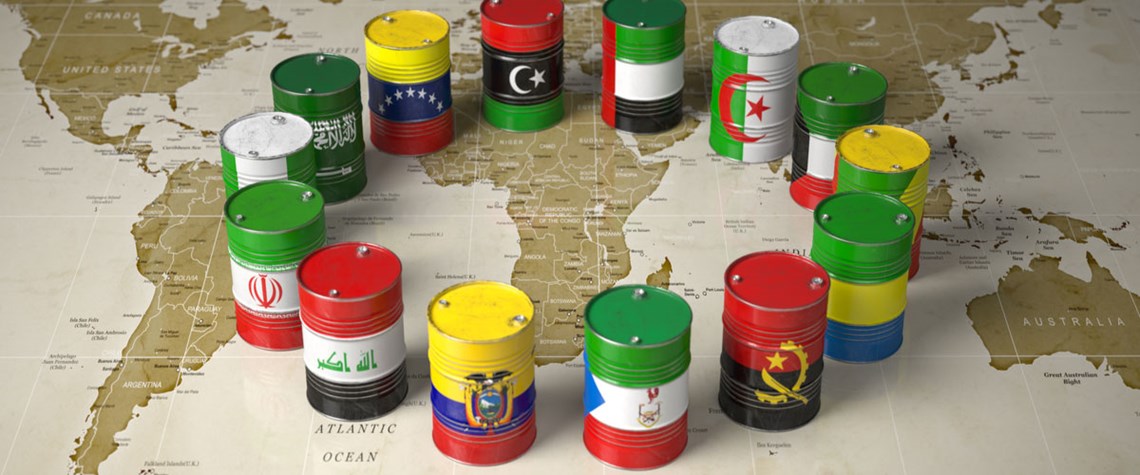The current energy crisis is testing the commitment of governments around the world to finding an approach that balances the security, affordability and sustainability of energy supplies, known as the energy trilemma.
Western countries must decide how far they will go in supporting Ukraine and isolating Russia, Opec+ producers how they will continue to coordinate oil production, and governments worldwide how they will pursue their commitments to accelerate the energy transition amid global volatility.
The origins of the current energy crisis stretch back much further than Russia’s invasion of Ukraine in February 2022, reflecting a decade of slowing investment in oil and gas production that has not been matched by a structural decline in demand. But the supply risks created by the Russia-Ukraine war have forced the crisis to the top of the global political agenda.
Since the invasion of Ukraine, Western governments have been trying to curtail Moscow’s energy revenues by imposing successive rounds of sanctions. The strength of the West’s political resolve to apply these restrictions has surprised many observers, especially as Europe has experienced spiralling energy prices alongside a sharp economic slowdown.
The disruption to oil markets will only intensify in 2023 as the EU embargo on Russian imports takes effect, while EU gas markets face further scope for flow cuts by Moscow, which would make it even harder for Europe to adequately meet demand through winter and then refill storage before next winter. Western sanctions will reduce Russian export revenues, but only at great cost to domestic economies in Europe.
We estimate Russian oil production will fall 2mn bl/d below pre-war levels by spring as the country’s producers struggle to find alternative buyers for all the supply impacted by the EU embargo. Redirecting diesel cargoes will be Russia’s hardest challenge, forcing the country to cut refinery runs and shut in production.
Even as oil prices rise again—fuelling inflation and hurting consumers—Europe will remain committed to these sanctions. Loosening the embargo would require unanimous agreement from all EU members, and countries such as Poland and the Baltics still want to add further sanctions, rather than ease existing ones.
These EU sanctions represent a dilemma for the Biden administration, which desperately wants to avoid another spike in oil prices driven by the EU embargo and Europe’s ban on offering shipping, insurance and services that enable Russian flows to other destinations. To avoid exposing this disagreement between allies, Washington has pushed a complex G7 price cap proposal that it hopes will keep Russian oil flowing to international markets—but this policy is too unwieldy to achieve its goal.
President Biden has few other levers left to manage oil prices, despite his promises to help US consumers struggling with high gasoline prices and inflation. He has released record volumes from the US Strategic Petroleum Reserve (SPR) this year and has promised to approve further releases if oil prices rise. But the SPR is a limited resource and would struggle to deliver such large volumes again in 2023. Other policy options considered by the White House—such as restricting US crude or product exports—risk disrupting markets in counterproductive ways that drive prices up.
This helps explain why the US has poured so much political effort into trying to influence Opec+ policy, but Biden’s requests to raise output have fallen on deaf ears. Saudi Arabia and other US allies in Opec+ have also resisted pressure to distance themselves from Russia, arguing the group makes technical rather than political decisions.
Opec+ producers strongly believe that cooperation remains in their best interest, and in October they demonstrated an ongoing commitment to avoid creating an oversupplied market by extending their production agreement through 2023 and announcing a new 2mn bl/d cut. Opec+ still faces a challenging year ahead as it pursues stable, high oil prices amid a global economic slowdown and heightened policy uncertainty on the supply side, including the EU embargo on Russian oil and potential further SPR releases.
For consumer nations, Opec+ decisions add another source of supply uncertainty and price risk. Western leaders will not be able to persuade producers to act against their self-interest and push prices lower, but starting a dialogue about how to reduce price volatility that damages all sides should theoretically be possible.
Recent history is not promising on this point, however, as Western leaders have tried to pursue net-zero emissions goals by discouraging new investment in fossil fuels while assuming supply would remain cheap and abundant enough to allow consumers to switch to green alternatives at their own pace. While that illusion has been shattered, governments are still pursuing their green commitments—the EU passed the European Green Deal, and the US committed $369bn of green investment in the Inflation Reduction Act.
But many short-term policy responses to the current energy crisis sit uncomfortably with these long-term green commitments. Oil and gas producers are being threatened with windfall taxes unless they increase upstream investment, massive subsidy programmes shield consumers and sometimes industry from full price signals, and governments are contemplating even more dramatic interventions—such as price caps or export bans—that would effectively override market mechanisms entirely.
Governments undoubtedly feel these measures are politically necessary, but they further complicate the policy landscape, making companies less willing to commit to upstream investment. There are no easy solutions to the energy trilemma of security affordability and sustainability, and politicians must openly acknowledge the choices and trade-offs required to develop a realistic policy. If they commit to this, then the year ahead could see energy markets shift towards a better path for both the short and long term.
Richard Bronze is head of geopolitics for research firm Energy Aspects.
This article is part of the upcoming special report Outlook 2023, which features expectations from the energy industry for key trends in the year ahead.








Comments